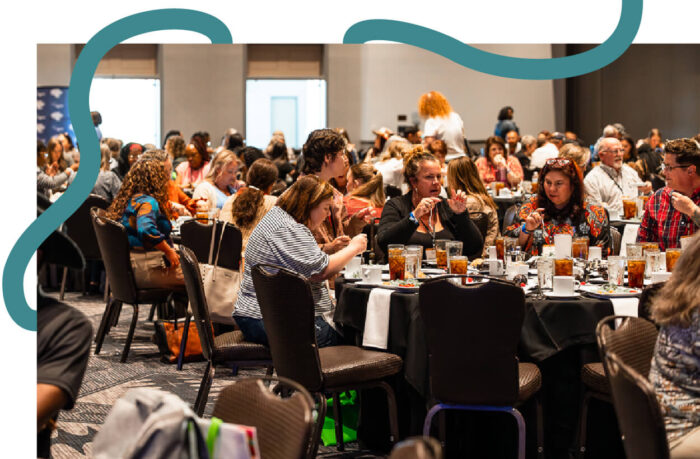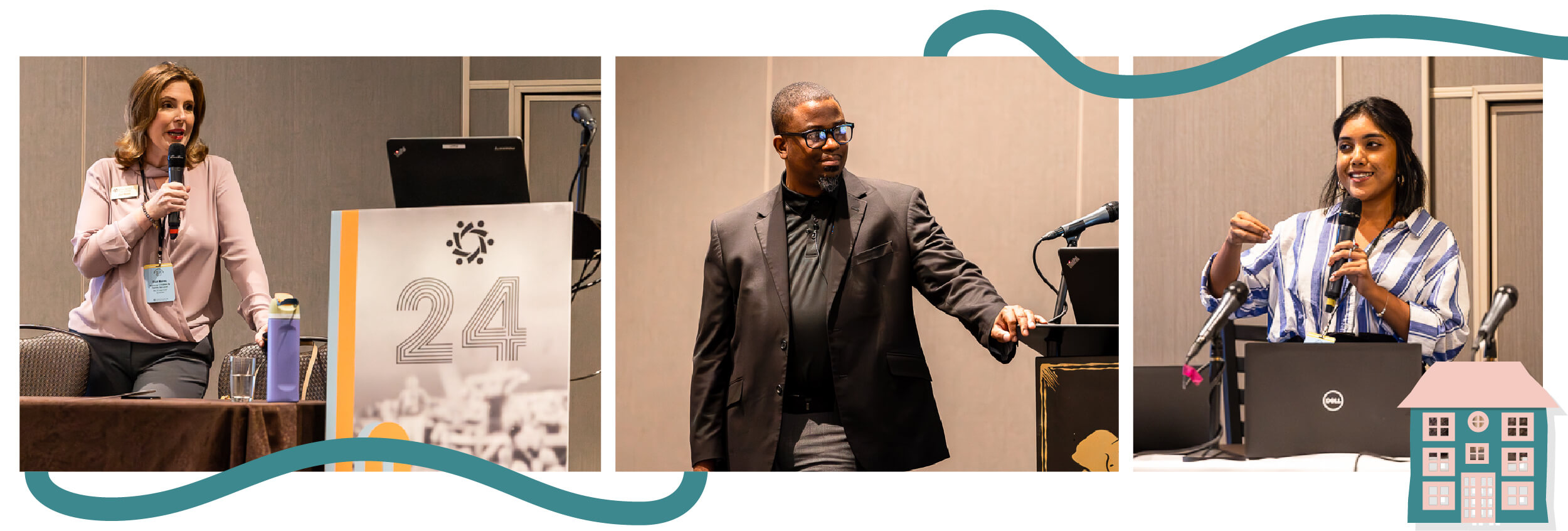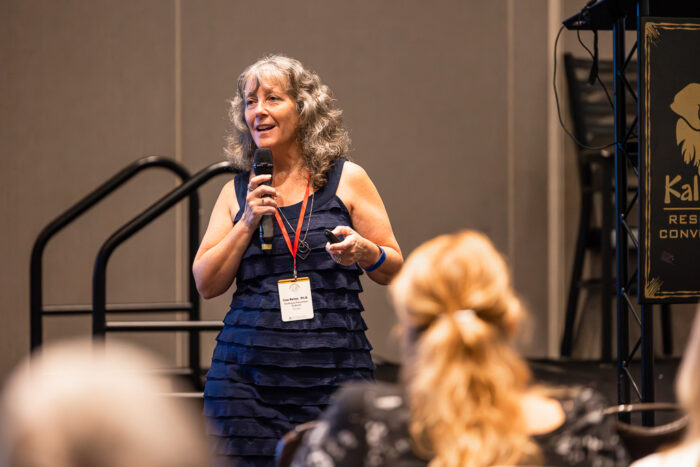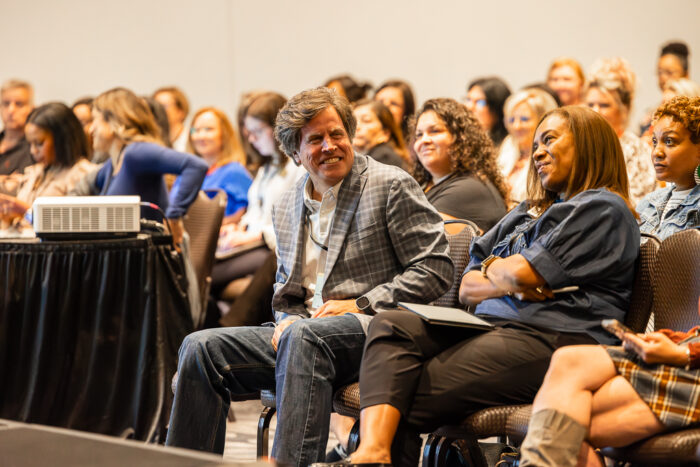Deadline for submissions extended to March 7, 2025.
The Texas Center for Child and Family Studies (the supporting organization of the Texas Alliance of Child and Family Services) invites experienced presenters to submit workshop proposals for our annual Texas Child Care Administrators Conference (TCCAC). This year’s conference is August 25-27, 2025, at the JW Marriott San Antonio Hill Country Resort & Spa (23808 Resort Pkwy, San Antonio, TX 78261).
About TCCAC
The TCCAC is the premier child-welfare conference in Texas and the one-stop-shop training event of the year for over 1,500 professionals working in adoption, foster care, residential childcare, prevention, family preservation, and more. TCCAC consistently delivers the best of the best training, tools, and networking opportunities to child, youth, and family-serving professionals in Texas (and beyond)!
2025 Theme: The Village
Each year, TCCAC brings together professionals and thought leaders for shared learning, idea exploration, and networking. We’re building up a village around Texas children, youth, and families with a focus on lasting impact—because as we know, families thrive when they are surrounded by care, encouragement and community. The Village wrapping its arms around Texas families is made up of the unique and varied skills YOU bring to work every day. Whether through offering a helping hand, lending an ear, or sharing wisdom, we all play a vital role in lifting each other up. Together, we create a network of care and solidarity, ensuring that every child and family in Texas can flourish.

Our Audience
Most workshop attendees are seasoned professionals and include childcare administrators, case managers, clinicians, public agency personnel, and community service organization staff. Presentations that address a broad spectrum of administrative and clinical issues for experienced professionals at the program and systems-level are welcomed. Due to the large size of our conference, many workshops will have an audience of between 100-300 attendees, sometimes more.
Hybrid Event
TCCAC is a hybrid event and includes workshops for both in-person and virtual audiences. All workshops are 90-minutes and will be delivered in-person, and some of these same workshops will be selected for inclusion in both the in-person and virtual program. Workshops also selected for inclusion in the virtual program will be pre-recorded between May and June and made available to virtual attendees via the conference website and app at the start of conference, August 25, 2025 and for 90 days after the end of conference. If your workshop is selected for both programs, conference organizers will contact you to schedule a time to pre-record your workshop via Zoom. None of the workshops will be selected for virtual only.

Selection Criteria
Proposals will be selected based on their relevance to the conference theme as described above, the guidelines below, and current issues in child, youth, and family wellbeing.
Proposals should be engaging and advance attendees’ knowledge and understanding of best practices and promising innovations in the field, building on skills and resources relevant to a diverse workforce servings kids and families across the child wellbeing continuum.
Experienced presenters with lived experience in the child welfare system are strongly encouraged to submit proposals.
Proposals that market/sell a product or program will not be considered.

Compelling workshops proposals will:
Be suitable for a 90-minute session
Be interactive rather than lecture-based only
Cover practical application of topics discussed – attendees want useful takeaways and tools
Demonstrate a basic understanding of Texas child welfare, including Community-Based Care
Provide an opportunity for participants to go beyond the status quo and think in new ways that advance the field towards excellence
Create opportunities to strengthen interconnectedness between participants, teams, and organizations in your session
Include aspects of diversity, equity, and inclusion/belonging
Other considerations for workshop selection may include:
Originality
Panelists/presenters must be limited to no more than 3
Identification of emerging best practices and techniques
Incorporation of effective adult learning techniques
Reflection of creative, promising work that responds to the needs of children, youth, families, and staff (model programs)

Deadline for proposals is March 7, 2025.
Help us make the 2025 Conference the best yet with your workshop proposal!
Please direct all workshop-related questions to conference@tacfs.org.
Guidelines & Timeline
Proposals must be submitted through our online submission form by March 1, 2025.
We kindly request that presenters do their best to include ALL of the information we’ve requested when submitting a proposal (bio, headshot, A/V needs, etc.) for the primary presenter and any co-presenter(s).
Primary presenters are responsible for communicating all information with co-presenters.
Submitting a proposal does not guarantee acceptance.
Presenters are not paid or compensated in any way for their participation. Presenters who also wish to attend Conference must register and pay to attend.
Presenters will be notified of decisions by April 15, 2025, if their workshop has been accepted.
Workshop presenters also selected for inclusion in the virtual program will be contacted by conference organizers to schedule a time to pre-record their session via Zoom. Pre-recordings will occur between May and June.
PLEASE NOTE: If selected for inclusion in the virtual program, the expectation is that the workshop will ALSO be presented live at the in-person event.
Presenters will be asked to submit copies of their workshop materials by July 31, 2025.
Copies of presentation materials that are shared will be uploaded to conference app.
There is very limited ability for TCCAC to provide printed copies of material.
Continuing Education Credits:
The Center will submit all workshop proposals selected for pre-approval to the Texas Health and Human Services Licensed Administrator Program for Child Care Licensing for Licensed Child Placing Agency Administrator (LCPAA) and Licensed Child Care Administrator (LCCA) continuing education training credits. We may also submit relevant workshops for pre-approval for Continuing Legal Education (CLE) credit hours for attorneys.



Ideas for Sessions:
Addressing Complex Trauma & Building Resilience
Adoption
Advancing Equity
Behavioral Health
Boards of Directors (recruitment, development, succession planning, etc.)
Child Development
Commercial Sexual Exploitation of Children/Anti-Trafficking
Complimentary Therapies
Community-Based Care
Data & Evaluation
Education Services
Effective Community-Based Interventions
Ethics
Fundraising
Integrating Youth & Family Voice
Leadership
Legal Aspects of Child Welfare
Mental Health
National Initiatives
Normalcy for Children & Youth
Organizational Leadership
Older Youth/Teens
Prevention/Early Intervention
Regulatory Issues
Siblings
Suicide Prevention/Intervention
Supporting Provider/Staff Wellbeing- Grief & Loss
Teaming Models
Transitional Programs for Youth
Trauma-Responsive Clinical Work
Working with Kin and Family
Workforce/Staff Retention
Youth & Family Engagement